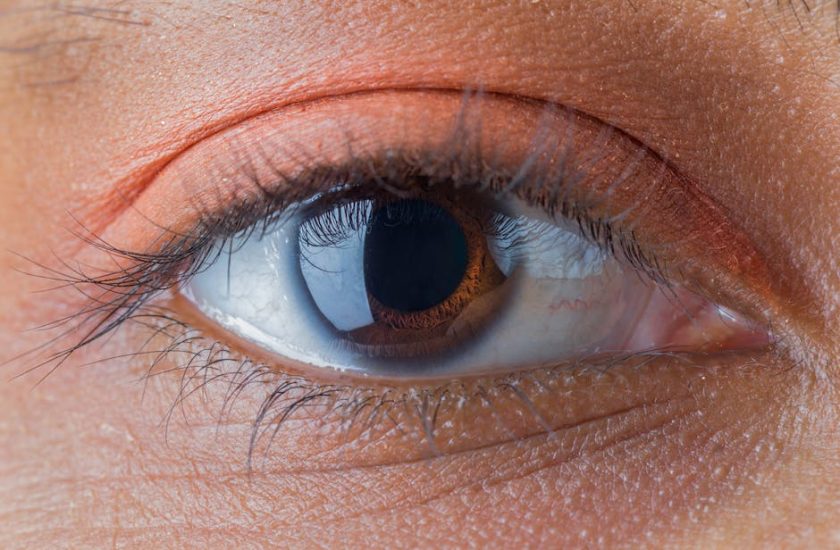Weight Loss and Vision Health: Keeping Your Eyes Sharp
When we think about weight loss, we often focus on the obvious benefits like improved fitness and better heart health. However, one often overlooked advantage is the positive impact that shedding excess pounds can have on our vision health. In this comprehensive guide, we’ll explore the intricate link between weight loss and vision, providing you with valuable insights and actionable tips to keep your eyes sharp.
The Connection Between Weight Loss and Vision Health
Many people are unaware of the significant connection between weight loss and vision health. Excess weight can increase the risk of several eye conditions, including cataracts, glaucoma, and diabetic retinopathy. By understanding this link, you can take proactive steps to protect your eyesight while pursuing your weight loss goals.
Understanding the Risks: How Excess Weight Affects Your Eyes
Carrying excess weight can lead to a range of health problems, and your eyes are not exempt from these effects. Obesity increases the likelihood of diabetes and high blood pressure, both of which are known risk factors for various eye diseases. According to the American Academy of Ophthalmology, people with diabetes are 40% more likely to suffer from glaucoma and 60% more likely to develop cataracts than those without the condition.
The Science Behind Weight Loss and Improved Vision
Scientific research has highlighted how weight loss can positively affect eye health. A study published in the journal Ophthalmology found that individuals who lost at least 10% of their body weight experienced a significant decrease in eye pressure, reducing their risk of developing glaucoma. Additionally, weight loss can improve insulin sensitivity, helping to prevent or manage diabetic retinopathy, a leading cause of blindness.
Actionable Tips for Enhancing Vision Health Through Weight Loss
Adopting a healthy lifestyle can simultaneously support your weight loss journey and protect your vision. Here are some actionable tips to get you started:
1. Embrace a Balanced Diet Rich in Nutrients
Eating a diet rich in fruits, vegetables, whole grains, and lean proteins can provide the essential nutrients needed for eye health. Foods high in omega-3 fatty acids, such as salmon and flaxseeds, have been shown to reduce the risk of dry eyes and macular degeneration. Additionally, leafy greens like spinach and kale are packed with lutein and zeaxanthin, antioxidants that protect against cataracts and age-related macular degeneration.
2. Stay Physically Active
Regular physical activity is crucial for maintaining a healthy weight and improving overall health. Engaging in exercises like walking, cycling, or swimming can help reduce the risk of obesity-related eye diseases. Aim for at least 150 minutes of moderate aerobic activity each week, as recommended by the World Health Organization.
3. Monitor and Manage Blood Sugar Levels
For individuals with diabetes, keeping blood sugar levels in check is vital for preventing diabetic retinopathy. Regular monitoring, adhering to prescribed medications, and following a diabetes-friendly diet can help manage blood sugar effectively. If you are not diabetic, maintaining stable blood sugar levels can still contribute to better eye health.
4. Prioritize Regular Eye Examinations
Regardless of your weight loss journey, regular eye examinations are essential for maintaining optimal vision health. Early detection of eye conditions can prevent severe complications. It is recommended to have a comprehensive eye exam every one to two years, or as advised by your optometrist.
Success Stories: Real-Life Examples of Weight Loss and Improved Vision
Hearing about the experiences of others can be a powerful motivator. Here are a couple of inspiring stories of individuals who improved their vision health through weight loss:
Case Study 1: Sarah’s Journey to Better Vision
Sarah, a 45-year-old woman, struggled with obesity and was diagnosed with prediabetes. Determined to change her life, she adopted a healthier lifestyle, losing 50 pounds over a year. Not only did her blood sugar levels normalize, but her vision also improved significantly. Her optometrist noted a reduction in eye pressure, decreasing her risk of glaucoma.
Case Study 2: Tom’s Transformation
Tom, a 60-year-old retiree, had been living with type 2 diabetes for over a decade. His weight loss journey began after he realized the impact of his condition on his vision. Through a combination of diet, exercise, and medication management, Tom lost 30 pounds. His efforts paid off, as his eye doctor observed a reduction in diabetic retinopathy progression during his annual check-up.
Conclusion: A Clearer Vision for a Healthier Future
Weight loss is not just about fitting into a smaller clothing size; it’s about embracing a healthier lifestyle that benefits your entire body, including your eyes. By understanding the connection between weight loss and vision health, you can make informed decisions that will keep your eyes sharp for years to come. Remember, adopting a balanced diet, staying active, and prioritizing regular eye exams are key steps to ensuring both your weight loss success and optimal eye health. Start your journey today, and enjoy the benefits of improved vision and overall well-being.

